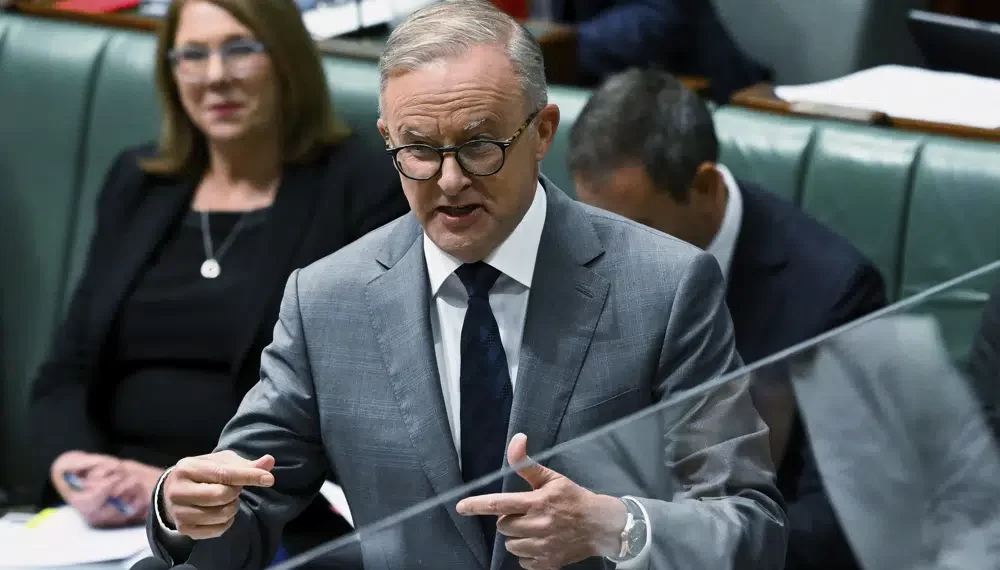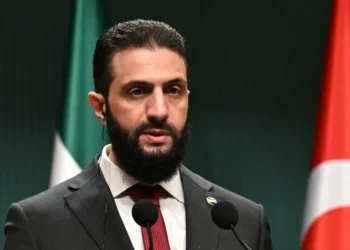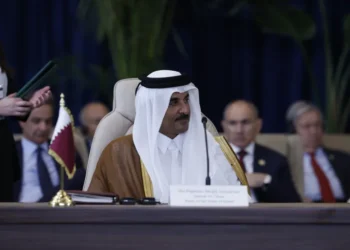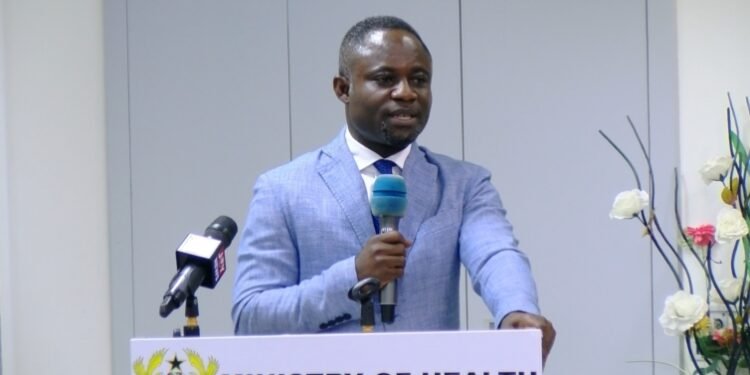The government of Australia has announced 424 million Australian dollars ($293 million) in new funding to improve the lives of Australia’s original inhabitants.
This comes fifteen years after the Australian Parliament’s historic apology to its Indigenous people for past wrongs.
In 2008, a newly elected center-left Labor Party government led by Prime Minister Kevin Rudd offered a formal apology to the Indigenous population for “laws and policies of successive Parliaments and governments that have inflicted profound grief, suffering and loss on these our fellow Australians.”
The focus of the apology was the so-called Stolen Generations; 100,000 children who were taken from Indigenous mothers under assimilation policies throughout most of the 20th century.
Thousands of these children were forcefully removed by governments, churches and welfare bodies to be raised in institutions, fostered out or adopted by non-Indigenous families, nationally and internationally.
The apology was accompanied by the ambitious pledge to close the gap in life expectancies between Indigenous Australians and the wider population within a generation.
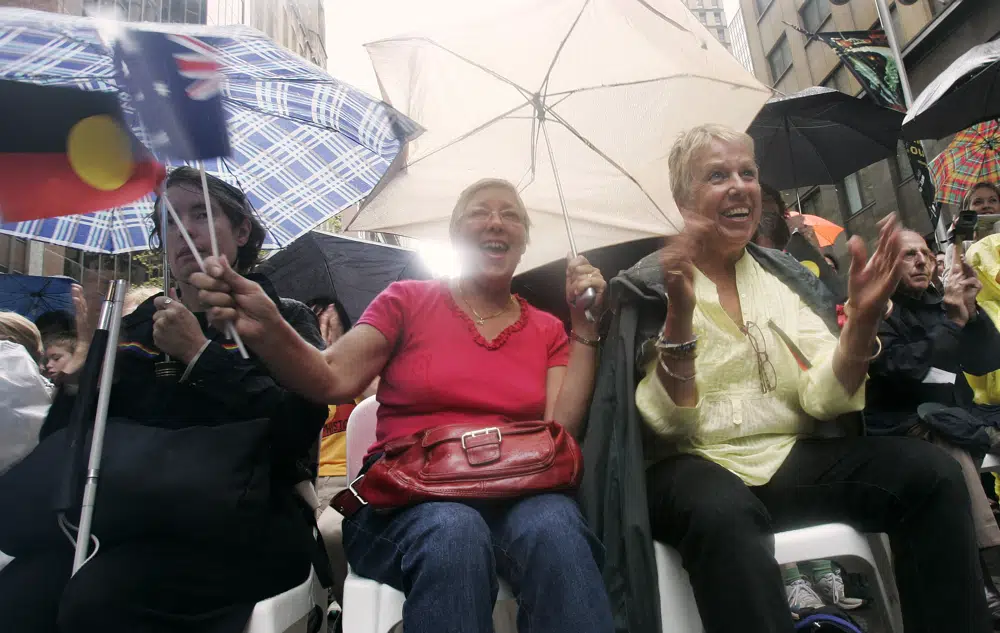
Key measures of disparities between the Indigenous population and others have been tracked annually in Closing the Gap Reports to identify and reduce a range of disadvantages.
The report shows gaps widening in some areas, including with increasing rates of suicide and incarceration among Indigenous people.
Australians expect to vote this year in a referendum that would enshrine in the nation’s constitution a mechanism for Indigenous people to advise Parliament on policies that effect their lives known as the Voice.
Proponents say embedding the Voice in the constitution would recognize the special place that Indigenous people have in Australian history while giving them input in government policies.
The government plans to introduce legislation to Parliament in March that would set up the referendum.
The legislation would be scrutinized by a Parliamentary committee for six weeks, during which more details would emerge, before the government hopes it goes to a vote in May.
The government hopes the referendum will be held on a Saturday sometime between August and November, 2023.
Prime Minister Anthony Albanese, whose Labor government was elected in May after nine years in opposition, told Parliament the new funding reaffirms “Closing the Gap as a top priority for my government.”
The Most Disadvantaged Ethnic Group In Country.
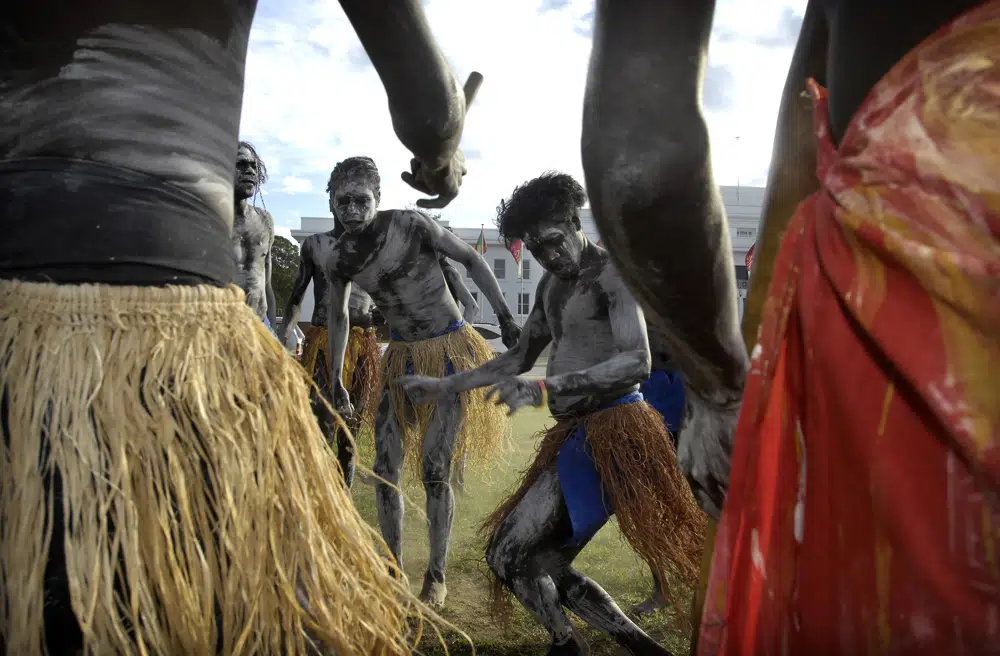
Indigenous people, accounting for 3.2% of Australia’s population in the 2021 census, are the most disadvantaged ethnic group in the country.
They die younger than other Australians, are less likely to be employed, achieve lower education levels and are overrepresented in prison populations.
“These aren’t gaps, they’re chasms,” Albanese said of measures of Indigenous disadvantage.
On top of the AU$1.2 billion ($830 million) in Indigenous spending announced in October, 2022, the new funding includes AU$150 million ($104 million) over four years to provide clean drinking water to Outback Indigenous communities.
AU$22 million ($15 million) would be spent over five years on combating family violence.
The government disclosed that indigenous women and children are 34 times more likely to experience family and domestic violence than other Australians.
In three years immediately before the apology and the Close the Gap pledge, Indigenous men died 11.4 years before the average Australian man and Indigenous women died 9.6 years younger than other Australian women, according to the Australian Bureau of Statistics.
A decade later, that gap has narrowed to 8.6 years for men and 7.8 years for women, the bureau’s latest data shows. Indigenous men have a life expectancy of 71 years and Indigenous women 75 years.
READ ALSO: Cambodia: Voice Of Democracy Radio Ceases Operations Due To PM’s Orders



